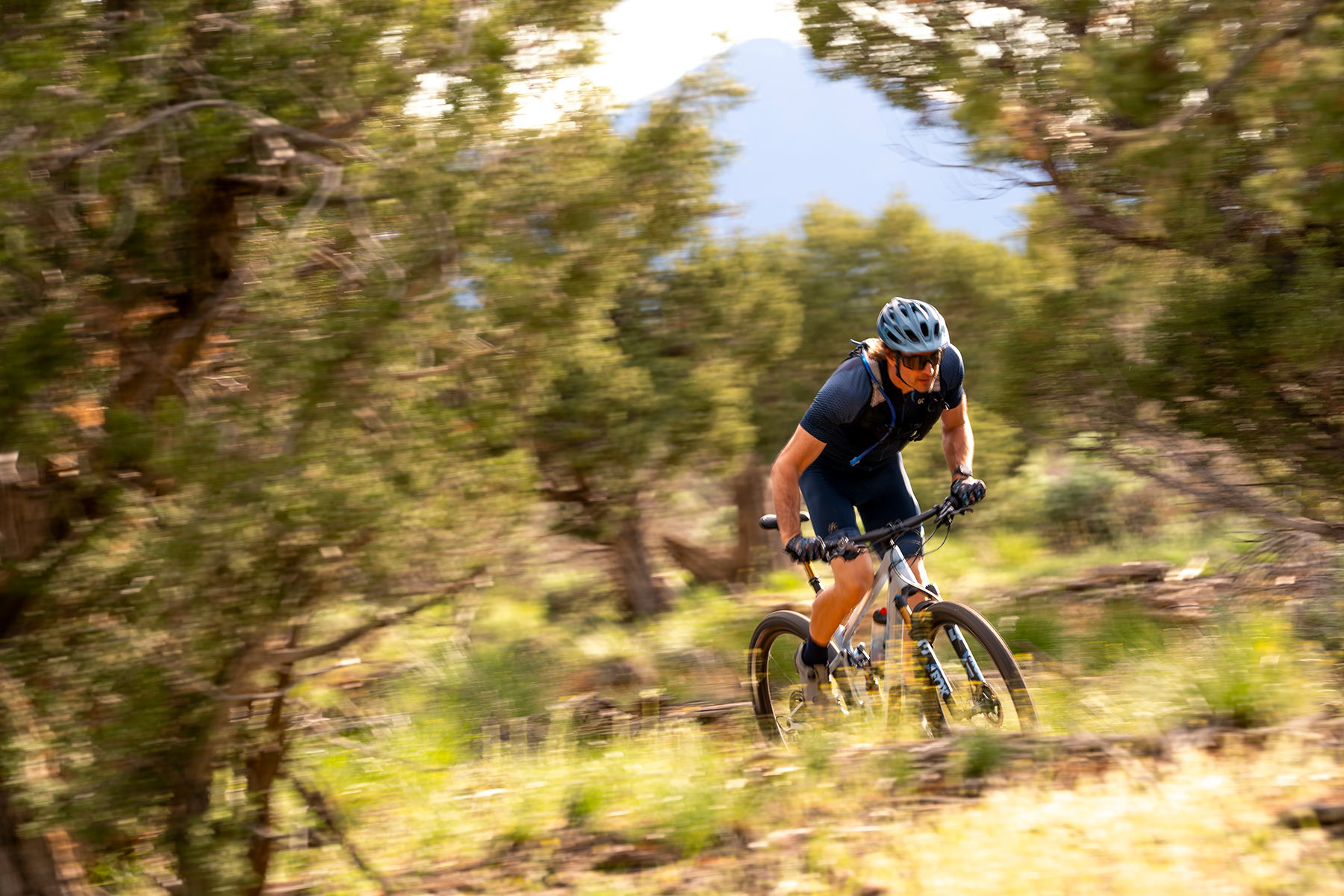The new Pivot Mach 4SL is a revolutionary XC bike in the most understated way. Its predecessor was also a ripper, giving the brand a much-needed aesthetic update while delivering respectable performance. But that was four years ago, and bikes and courses have continued to evolve toward the rowdier, more aggressive end of the cross-country spectrum.
So Pivot evolved, too.
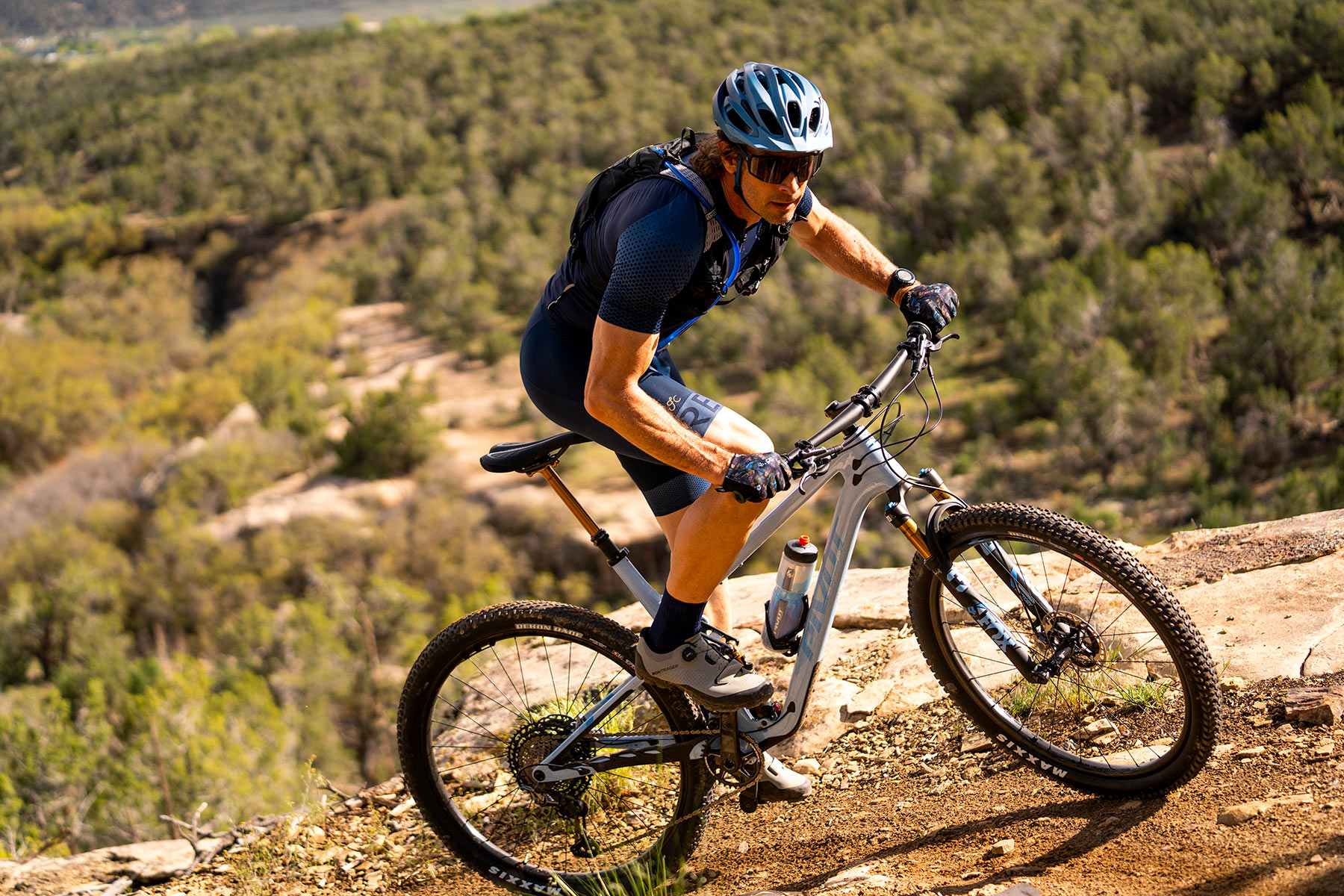
The longer, lower, slacker treatment that so many modern bikes have is here, and the geometry felt dialed. Suffice to say that throwing myself into blind high speed corners and un-recon’d rock drops never felt (too) scary, because the bike felt up to it.
Handling is dialed for XC racing, and with the longer travel Team XTR model I rode, the bike felt capable of “downcountry” exploits, too.
Meaning, it’s perfectly suited for marathons, epics, stage races, and other fast forward adventures.
But the real highlight is the suspension and it’s ability to shapeshift to fit any course and any rider.
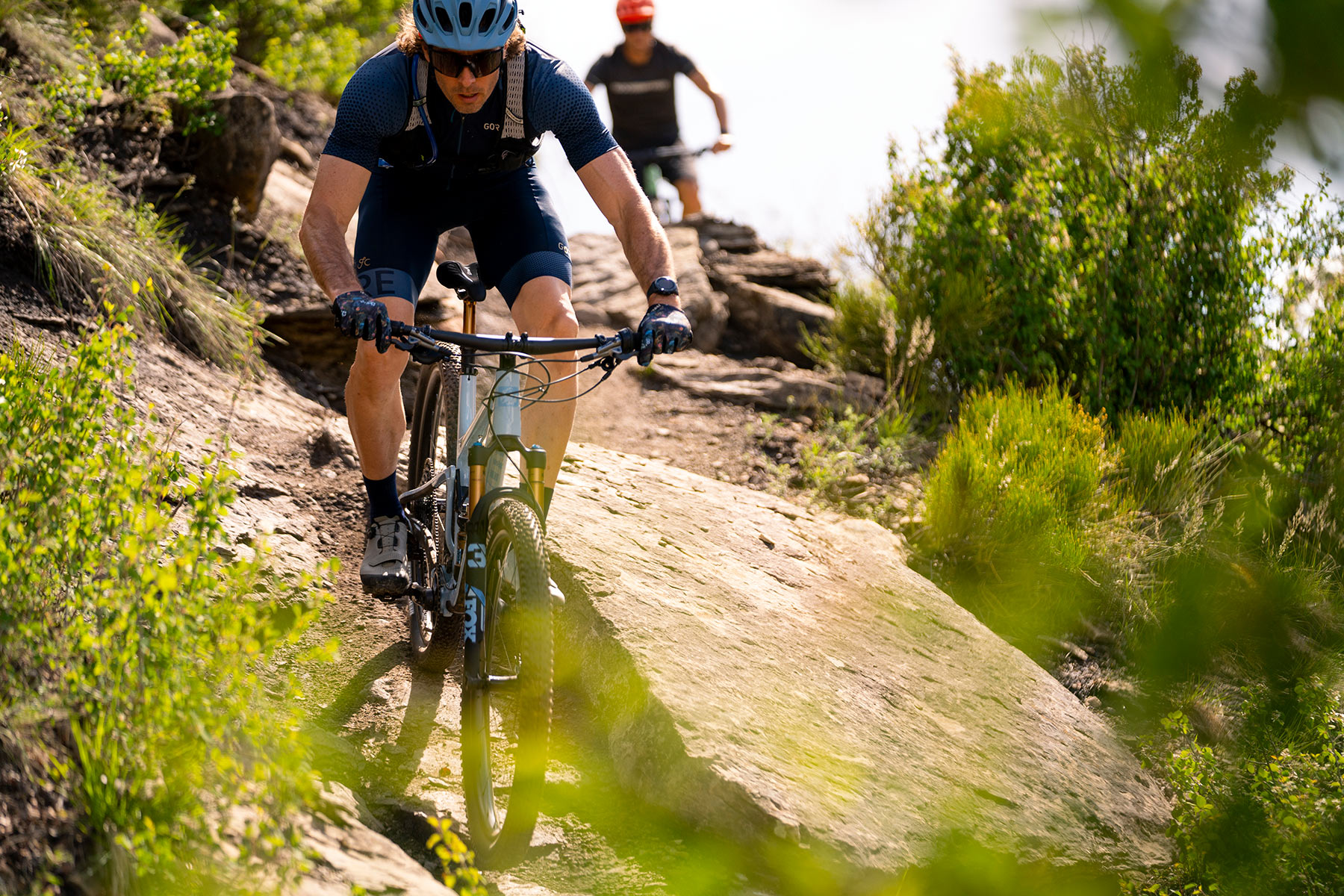
The new 4SL’s multi-travel, multi-mode suspension is brilliant in its simplicity, and brilliantly effective. By swapping between 40mm or 45mm stroke rear shocks, and selecting one of two upper mount positions, you get four distinct travel modes. Yes, you’ll want to swap the forks, too…maybe.
If you’re starting with the longer travel models, shortening the rear travel while keeping the 120mm fork may work out just fine. But you wouldn’t want to go the other way, putting the longer stroke (and thus getting longer travel) shock on the World Cup models with their 100mm forks.
For most riders (and Pivot knows this, with sales forecasts saying 97% of riders will opt for the long travel bikes), the Team, Pro and Ride editions will be the ones you want, offering 106mm or 115mm of travel depending on how you flip the chip.
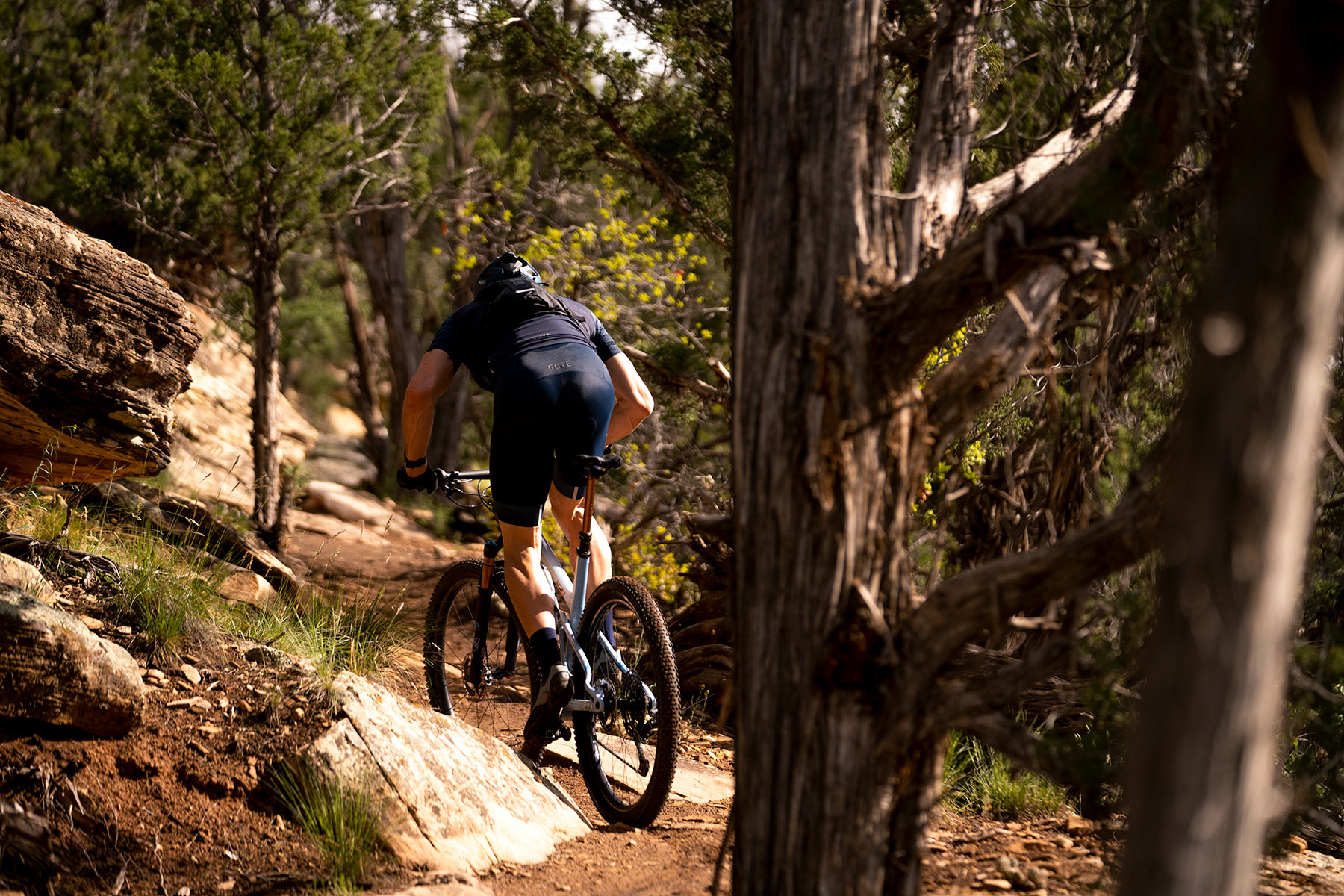
We rode Phil’s World trails in Cortez, CO, which offered the perfect testing ground. Short punchy climbs and sustained ascents showed off it’s climbing prowess, and long flow trails and rocky technical drops and descents showed it could go down just as well.
I rode most of the time in the longest travel mode, which kept things soft off the top for better small bump compliance and a more comfortable ride. Looking down, pedal bob was minimal, but never felt like it was robbing energy.
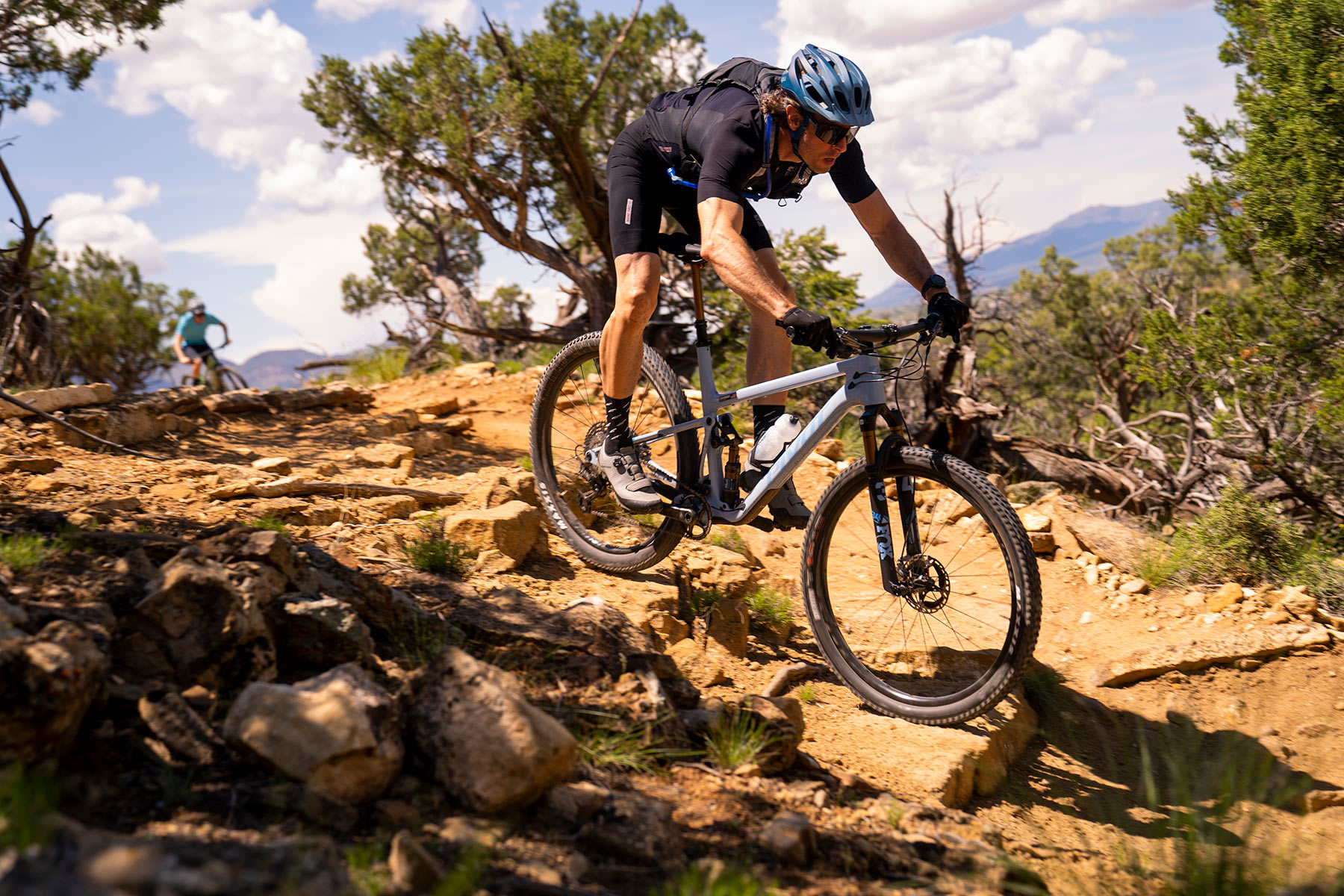
In fact, Pivot’s version of DW-Link is very effective at transferring power to the ground, clawing its way into the terrain for excellent traction over almost anything.
And that was a big goal with this new bike. Pivot’s founder Chris Cocalis said “tractability” was high on the list for performance goals, and I’d say they succeeded. The rear tire, aided by a bit of anti-squat, bites into the ground and motors through chunder without skipping a beat.
When switched into the shorter travel mode, the bike becomes markedly racier. It’s not just that it loses 9mm of travel, the entire kinematics change to make it sit higher and firmer.
Pedal bob all but disappears entirely, but so do the cushy landings.
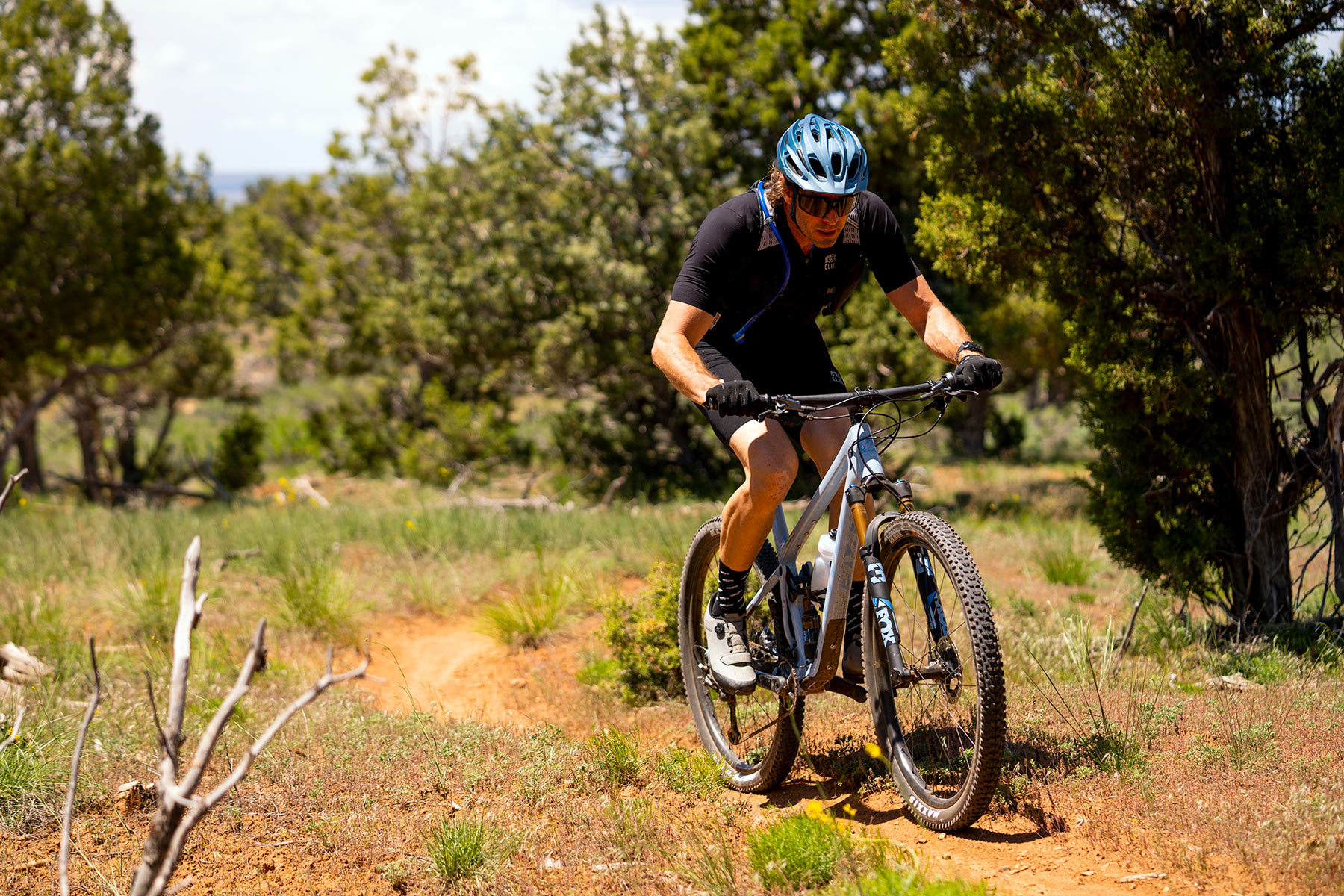
I’ve never felt a bike change so dramatically with such a simple adjustment. While it’s not something you’d do during a Short Track or XCO event, it really does take only 60 seconds to flip the upper shock mount to the other position, so it’s easy to try both, and something you could do stage by stage or section by section on less intense races.
And you still have the lockout, although I’d argue this bike (and many others) really don’t need it. But, Pivot is a global brand and Germany wants its lockouts, so the fact that the longer travel bikes “only” come with a rear remote lockout and not both (like the shorter travel World Cup models) was the concession Pivot and their German distributors could agree on.
(Hilariously, to me anyway, apparently an XC bike is “unsellable” in Germany without a lockout. But Germany buys a LOT of bikes, too, so…Germany gets what Germany wants in this case).
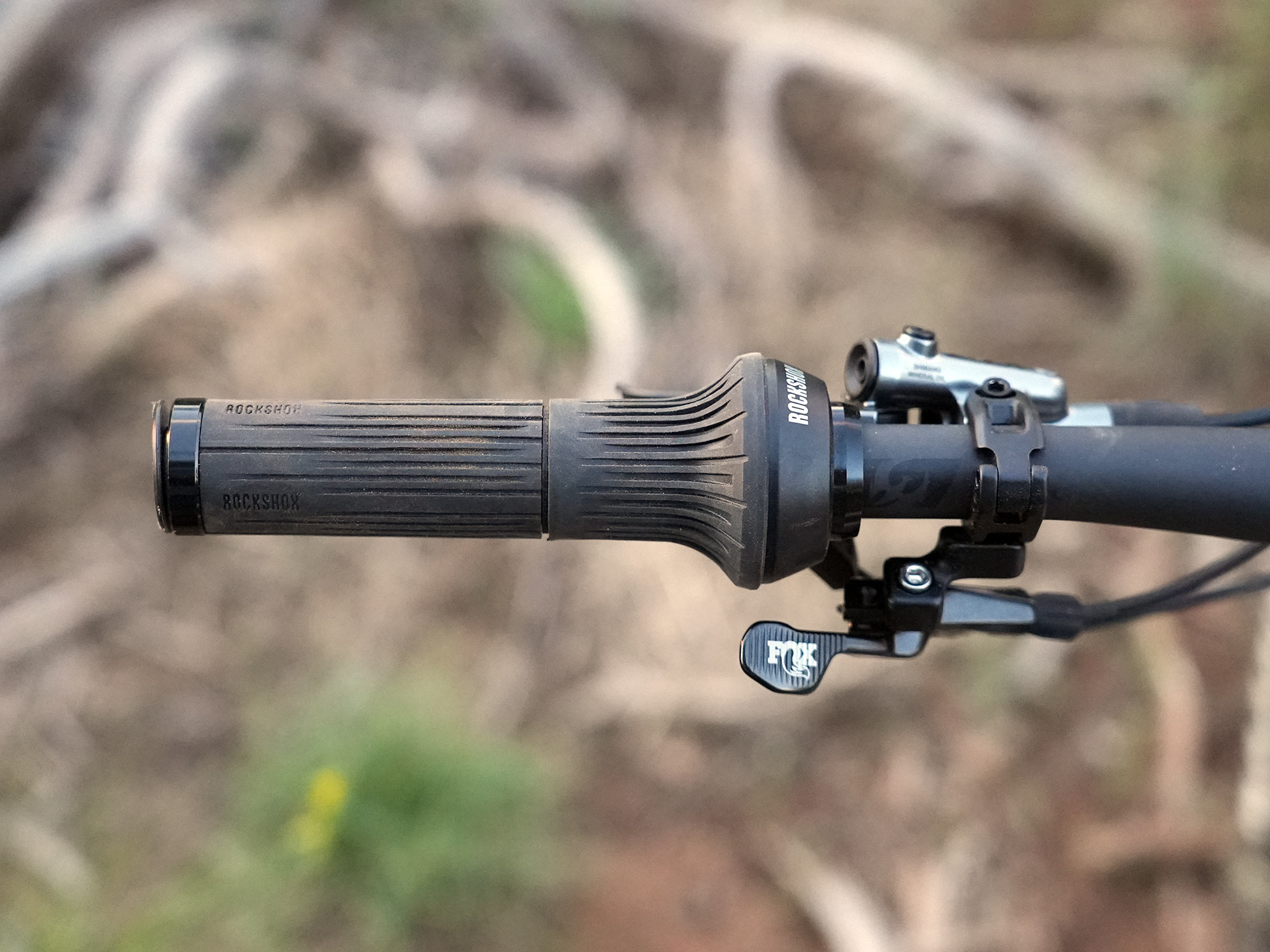
The downside to this, for me, is that it somewhat locks me into using the Rockshox TwistLoc. Which, admittedly, is one of the best remotes for locking out a rear shock, but it pretty much locks you into using their companion grips, which are not my favorite. And that’s because all models of the Mach 4SL come with a dropper post, so that lever sits under the bar where it should…and takes up the spot for lever-based remote lockouts.
Other than that, the spec on the Pivot Mach 4SL lineup is really good. Their housebrand carbon bar was good (in that I didn’t notice it, which, again, to me, means it’s compliant and damping like a good carbon bar should be), which is important because that’s often one of the first things I look to replace.
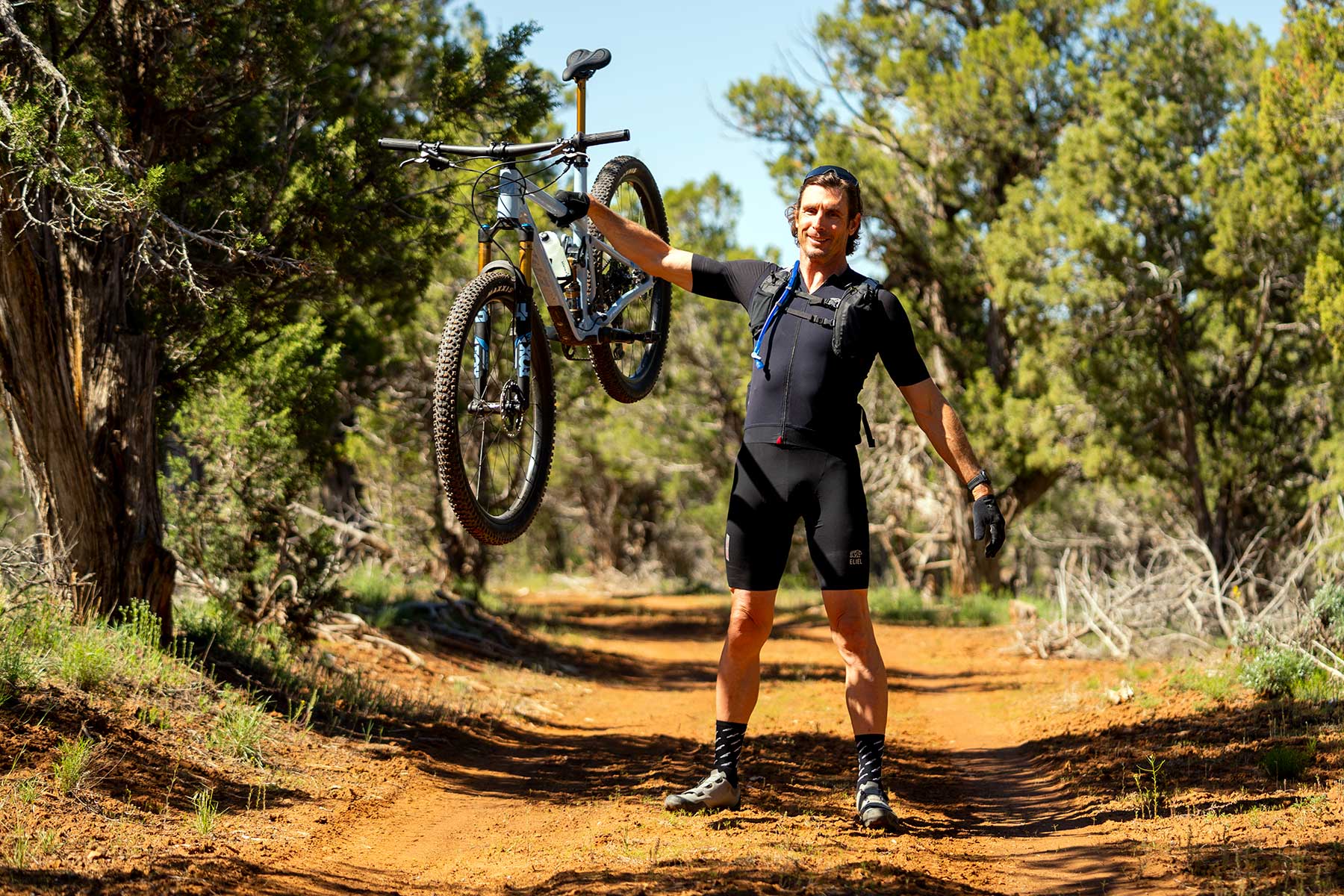
Granted, I rode the top-level XTR bike, and it’s fantastic, but down the line Pivot offers both Shimano and SRAM equipped models at each price point, letting you choose which one you like better. And, for now, that means you can still get a really high end mountain bike with mechanical shifting, which is nice.
Overall, the updates (did I mention the frame is almost a pound lighter?) are welcome and make for a dramatically better bike. Which is saying a lot considering how good the last one was.
Check the full launch story for tech details and closeup pics of the bike’s features.
